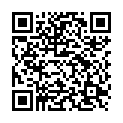|
|
|
| Module code: WIBb21-650 |
|
|
30VS (30 hours) |
|
5 |
| Semester: 6 |
| Mandatory course: yes |
Language of instruction:
German |
Assessment:
Exam
[updated 11.06.2025]
|
|
The total student study time for this course is 150 hours.
|
Recommended prerequisites (modules):
WIBb21-100
WIBb21-110
WIBb21-300
WIBb21-400 Cost Accounting and the Basics of Management Accounting
WIBb21-440 Machine Elements and CAD
WIBb21-500 Investment and Financing
[updated 12.11.2025]
|
Recommended as prerequisite for:
|
Module coordinator:
Studienleitung |
Lecturer:
Prof. Dr.-Ing. Christian Köhler
Lehrbeauftragte der htw saar
Lehrbeauftragte
Professor/innen des Studiengangs
[updated 12.11.2025]
|
Learning outcomes:
After successfully completing this module students will:
- be able to list the key constraints and tasks involved in planning production facilities, from site selection to factory layout design.
- be able to analyze products in terms of their suitability for manufacturing and assembly.
- be able to plan and evaluate value streams and work systems in the production environment (performance, costs, productivity, ergonomics, environmental impact).
- be able to critically reflect on the importance of quality and the environment as competitive and cost factors.
- be familiar with the basic requirements of common policies and standards for quality and environmental management and be able to apply them to production.
[updated 11.06.2025]
|
Module content:
Technical basics (lecture with exercises):
- Introduction
- Planning factories
- x-appropriate product design (Design for X)
- Planning value streams, work processes, and operating resources
- Designing ergonomic work systems
- Time and cost analysis and evaluation of production work systems
- Requirements and tasks of quality and environmental management
Practical application in the WI model factory workshop:
- Planning, computer simulation, physical mock-ups, and evaluation of human-centered workflows and work systems
[updated 11.06.2025]
|
Teaching methods/Media:
Lecture, digitally supported teaching, self-study
[updated 11.06.2025]
|
Recommended or required reading:
Feldhusen, J./Grote: K.-H.: Pahl/Beiz – Konstruktionslehre. 7. & 8. Auflage, Berlin: SpringerVieweg
Wiendahl, H.-P. & Wiendahl, H.-H. (2019): Betriebsorganisation für Ingenieure. 9. Auflage, München: Hanser
Burggräf, P. & Schuh, G. (2021): Fabrikplanung, Handbuch Produktion und Management Band 4. 2. Auflage, Berlin: SpringerVieweg
Wiendahl, H.-P., Reichradt, J., & Nyhuis, P. (2009): Handbuch Fabrikplanung. München, Hanser
Bokranz, R., & Landau, K. (2012): Handbuch Industrial Engineering. Schäffer-Poeschel
Lotter, B., & Wiendahl, H.-P. (Hrsg.) (2013): Montage in der industriellen Produktion. 2. Auflage, Berlin: SpringerVieweg VDI-Buch
Eversheim, W. (1989): Organisation in der Produktionstechnik – Band 4: Fertigung und Montage. 2. Auflage, VDI-Verlag
Köhler, C. (2017): Produktionsoptimierung mit Wertstromworkshops – Leitfaden zur zielorientieren Optimierung und Gestaltung von Produktionsflüssen. Berlin: ePubli
Benes, G. & Groh, E. (2017): Grundlagen des Qualitätsmanagements, 4. Auflage, Carl Hanser Verlag
Jakoby, W. (2018): Qualitätsmanagement: Jakoby, W.; Qualitätsmanagement für Ingenieure Ein praxisnahes Lehrbuch für die Planung und Steuerung von Qualitätsprozessen; Springer Verlag, 2019; ISBN: 978-3-658-26595-3
Herrmann, J. & Fritz, H. (2016): Qualitätsmangament – Lehrbuch für Studium und Praxis; 2. Auflage, Carl Hanser Verlag
[updated 11.06.2025]
|

